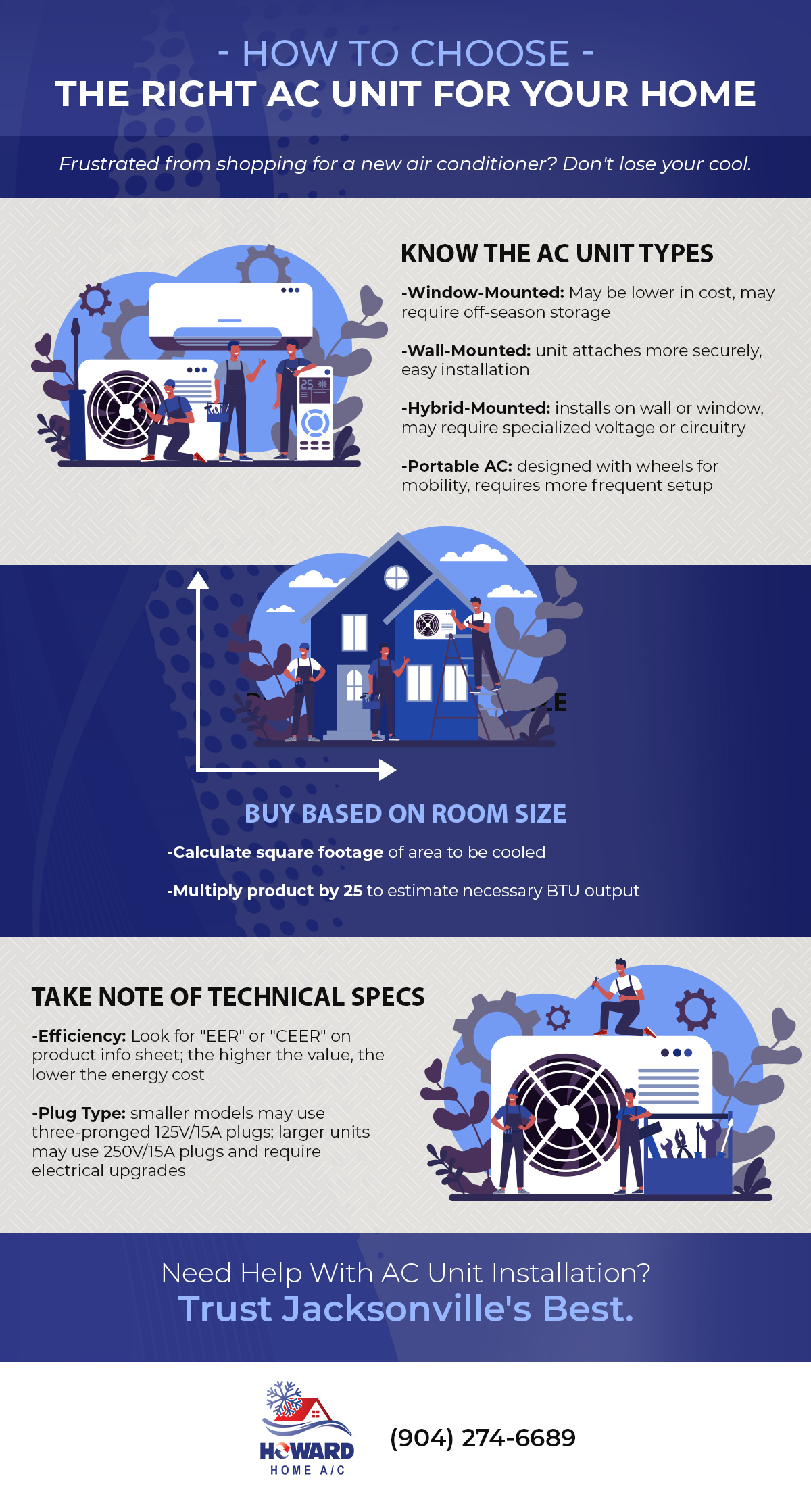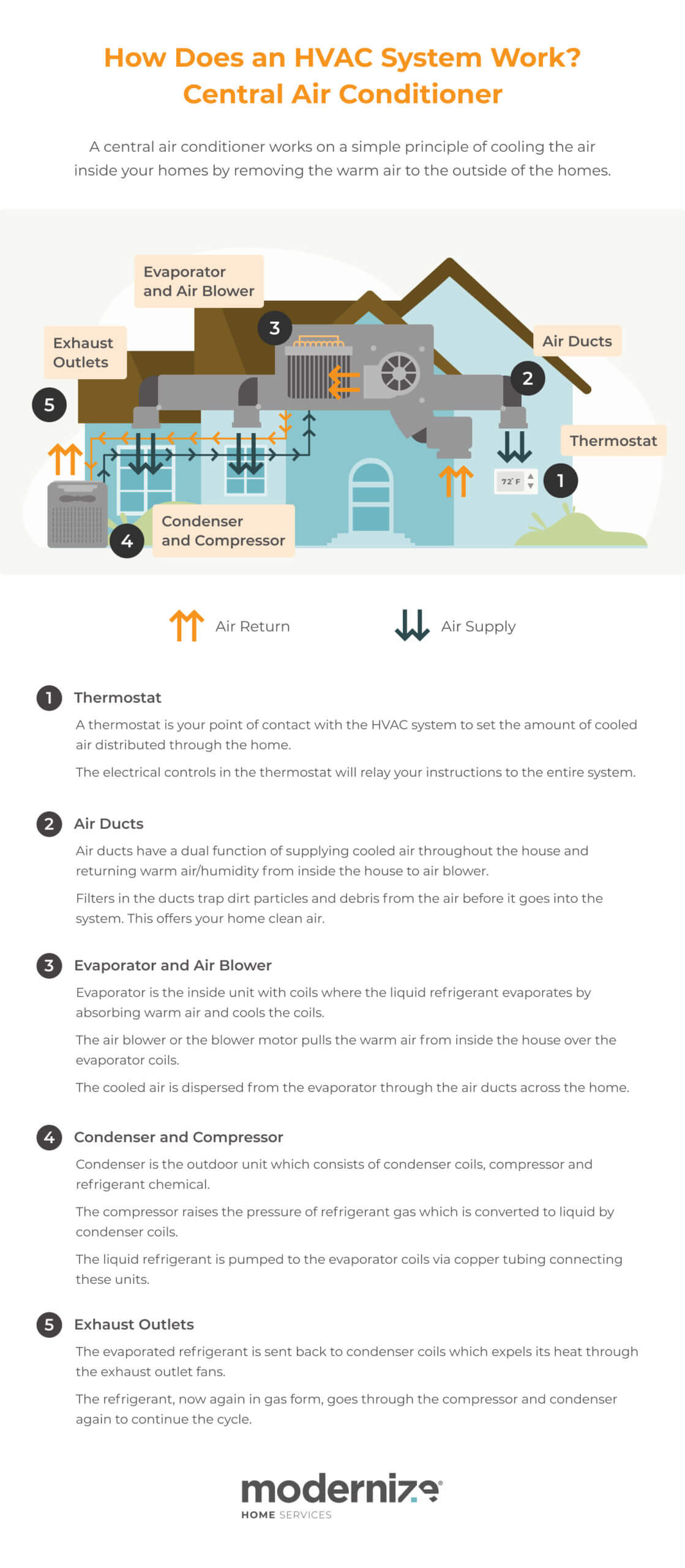Are you in the market for a new HVAC system for your home? With so many options available, it can feel overwhelming to make the right choice. That’s where we come in. In this article, we will provide you with valuable tips and advice for selecting the perfect HVAC system for your specific needs. From considering the size of your space to understanding energy efficiency ratings, we’ve got you covered. Keep reading to make an informed decision and create a comfortable environment for your home or business.
Factors to Consider
When it comes to choosing the right HVAC system for your space, there are several factors that you need to take into consideration. These factors will help ensure that you select a system that meets your specific needs and provides optimal comfort and efficiency. Here are the key factors to consider:
Size of the space
The size of your space is an important factor to consider when choosing an HVAC system. A system that is too small will struggle to cool or heat your space effectively, while a system that is too large will waste energy and may result in uneven temperatures. It is essential to properly calculate the size of your space to determine the appropriate HVAC system size.
Energy-efficiency
Energy efficiency is another crucial factor to consider. An energy-efficient HVAC system can help you reduce your energy consumption and utility bills while minimizing your environmental impact. Look for systems with high Seasonal Energy Efficiency Ratio (SEER) and Energy Efficiency Ratio (EER) ratings, as well as Energy Star certification.
Climate
The climate of your region plays a significant role in determining the best HVAC system for your space. For example, in hot and humid climates, a system with good dehumidification capabilities may be necessary. Additionally, regions with extreme temperatures may require more powerful and specialized systems to maintain a comfortable indoor environment.
Noise level
The noise level of an HVAC system can impact your overall comfort. If you have a low tolerance for noise or if you plan to place the system in a noise-sensitive area, such as a bedroom or office, it is important to consider the noise level of different HVAC systems. Look for systems that offer quiet operation without compromising performance.
Budget
Your budget is a key consideration when choosing an HVAC system. HVAC systems can vary widely in terms of cost, depending on factors such as brand, size, and features. It is essential to determine a budget range and consider the long-term costs, including installation, maintenance, and energy consumption, to make an informed decision.
Types of HVAC Systems
There are various types of HVAC systems available, each with its own advantages and suitability for different spaces. Understanding the different types will help you select the right system for your needs. Here are the most common types of HVAC systems:
Split Systems
Split systems consist of two main components: an indoor unit (evaporator coil and air handler) and an outdoor unit (condenser and compressor). This type of system is the most common and is ideal for spaces that have existing ductwork. Split systems are known for their excellent cooling and heating capabilities.
Packaged Systems
Packaged systems are an all-in-one solution that combines all components in a single unit. These units are typically installed outside the building or on the roof, making them ideal for spaces with limited indoor space, such as apartments or small commercial buildings. Packaged systems are available in different configurations, including air conditioning only or heating and cooling.
Ductless Mini-Split Systems
Ductless mini-split systems are ideal for spaces without existing ductwork or where adding ductwork is not feasible. These systems consist of an outdoor unit connected to one or more indoor units. Each indoor unit can be controlled independently, allowing for customizable comfort in different areas or rooms. Ductless mini-split systems are energy-efficient and offer flexible installation options.
Heat Pump Systems
Heat pump systems are versatile and can provide both heating and cooling. These systems extract heat from the air or ground and transfer it indoors or outdoors, depending on the desired temperature. Heat pump systems are known for their energy efficiency and can be a cost-effective option for regions with moderate climates.
Geothermal Systems
Geothermal systems utilize the stable temperature of the earth to provide heating and cooling. These systems extract heat from the ground through buried pipes filled with a refrigerant. Geothermal systems are highly energy-efficient and can provide significant long-term savings, although they typically require a larger upfront investment.

This image is property of cdn.shopify.com.
Calculating the BTU
BTU (British Thermal Unit) is a measurement used to determine the cooling or heating capacity needed for a specific space. Properly calculating the required BTU for your space is essential to ensure optimal comfort and energy efficiency. Here are the key aspects of calculating the BTU:
Understanding the BTU
BTU is the amount of heat needed to raise the temperature of one pound of water by one degree Fahrenheit. In HVAC terms, it represents the cooling or heating capacity of the system. The higher the BTU, the more powerful the system, and the larger the space it can effectively cool or heat.
Determining the required BTU for your space
To determine the required BTU for your space, you need to consider factors such as the size of the space, insulation, number of windows, and the climate of your region. Several online BTU calculators are available to simplify the process. It is important to ensure the calculated BTU aligns with the recommended cooling and heating capacity for your specific space.
Considerations for different climates
The climate of your region can impact the required BTU for your space. In hot climates, you may require a higher BTU to provide effective cooling, while in cold climates, a higher BTU is needed for efficient heating. It is important to consider these climate-specific factors when calculating the BTU for your HVAC system.
Factors affecting BTU calculation
Several factors can affect the BTU calculation, including ceiling height, sun exposure, number of occupants, and the presence of heat-generating appliances. It is important to account for these factors to ensure accurate BTU calculations and avoid installing an HVAC system that is either undersized or oversized for your space.
Energy Efficiency
Energy efficiency is a crucial consideration when selecting an HVAC system. An energy-efficient system not only helps reduce your environmental impact but also saves you money on utility bills. Here are the key factors to consider regarding energy efficiency:
SEER Rating
The Seasonal Energy Efficiency Ratio (SEER) is a measure of the cooling efficiency of an air conditioning system. Higher SEER ratings indicate greater energy efficiency. The minimum SEER rating required by the U.S. Department of Energy is 13, but more efficient systems can have SEER ratings of 20 or higher.
EER Rating
The Energy Efficiency Ratio (EER) is another measure of cooling efficiency, similar to SEER. However, unlike SEER, EER measures cooling efficiency at a specific outdoor temperature. A higher EER rating indicates better energy efficiency. EER ratings are especially important for regions with high outdoor temperatures.
Energy Star Certification
The Energy Star certification is awarded to HVAC systems that meet strict energy efficiency guidelines set by the U.S. Environmental Protection Agency. Energy Star-certified systems can help you save up to 15% on energy costs compared to standard systems. Look for the Energy Star label when selecting an HVAC system.
Inverter Technology
Inverter technology is a feature commonly found in high-efficiency HVAC systems. Inverter-driven compressors adjust their speed based on the cooling or heating demand, providing precise temperature control and reducing energy consumption. Inverter technology can significantly improve energy efficiency and overall system performance.
Variable Speed Motors
Variable speed motors are another feature that enhances energy efficiency. These motors adjust their speed to match the cooling or heating needs of the space, resulting in energy savings. Variable speed motors also contribute to quieter operation and improved indoor comfort.

This image is property of www.countrysideph.com.
Maintenance and Service
Proper maintenance and service are crucial for the longevity and performance of your HVAC system. Regular maintenance can help prevent breakdowns, ensure optimal efficiency, and extend the lifespan of your system. Here are the key aspects of maintenance and service:
Filter replacement
Regular filter replacement is essential to maintain good indoor air quality and ensure efficient system performance. Clogged or dirty filters can restrict airflow and strain the system, resulting in higher energy consumption. Follow the manufacturer’s recommendations for filter replacement or consider using high-efficiency filters for better air filtration.
Regular servicing
Schedule regular servicing by a qualified HVAC technician to ensure that your system is running smoothly. Routine maintenance tasks may include cleaning coils, checking refrigerant levels, lubricating moving parts, and checking electrical connections. Regular servicing can help detect and resolve potential issues before they become more significant problems.
Warranty and after-sales service
Check the warranty provided by the HVAC manufacturer and understand the coverage it offers. A comprehensive warranty can provide peace of mind and protect you from unexpected repair costs. Additionally, consider the availability and quality of after-sales service in your area, as prompt and reliable service can be crucial when you encounter any system issues.
Availability of spare parts
When selecting an HVAC system, it is important to consider the availability of spare parts. Opt for systems from reputable brands that have a wide network of service providers and readily available spare parts. This ensures that you can easily obtain necessary replacements or repairs in case of component failure.
Professional Installation
While it may be tempting to attempt a DIY installation, Professional installation is highly recommended for HVAC systems. Proper installation ensures optimal system performance, energy efficiency, and reliability. Here are the key aspects of professional installation:
Importance of professional installation
Professional installation is crucial to ensure that your HVAC system operates at its peak performance. Improper installation can lead to various issues, including reduced efficiency, increased energy consumption, and premature system failure. HVAC technicians have the knowledge and expertise to install the system correctly, considering factors such as ductwork design and system compatibility.
Choosing a reputable HVAC contractor
Take the time to research and select a reputable HVAC contractor for your installation. Look for contractors with relevant licenses, certifications, and experience in installing the type of HVAC system you have chosen. Ask for references and read customer reviews to gauge the contractor’s reputation and reliability.
Obtaining multiple quotes
Obtaining multiple quotes is a good practice to ensure a fair price and gather different perspectives. Request quotes from different HVAC contractors, comparing not only the price but also the scope of work, warranty, and after-sales service offered. Be cautious of significantly low quotes, as they may indicate subpar quality or shortcuts in installation.
Verifying licenses and certifications
Before finalizing your decision, verify the licenses and certifications of the HVAC contractor you plan to hire. A licensed contractor ensures compliance with local building codes and regulations. Additionally, certifications from reputable organizations such as North American Technician Excellence (NATE) indicate the contractor’s competence and commitment to quality.

This image is property of i.ytimg.com.
Zoning
Zoning allows you to divide your space into different zones with individual temperature control. This feature provides customized comfort, reduces energy consumption, and can help resolve temperature variations throughout your space. Here are the key aspects of zoning:
Understanding zoning
Zoning divides your space into separate zones with their own thermostats. Each zone can be set to different temperature levels, allowing occupants in each zone to control the temperature according to their preference. Zoning enables more precise control of comfort and reduces energy waste by only conditioning the zones that need it.
Benefits of zoning
Zoning offers several benefits, including enhanced comfort, energy savings, and improved efficiency. With zoning, you can avoid overheating or overcooling unused areas of your space, resulting in reduced energy consumption. Zoning also helps eliminate temperature variations between rooms, ensuring everyone’s comfort.
Factors to consider for zoning
When considering zoning for your HVAC system, it is important to evaluate factors such as the layout of your space, insulation levels, and the number of occupants. Additionally, consider your specific comfort needs and lifestyle. Zoning is particularly beneficial for larger spaces with multiple rooms or areas that have different heating or cooling requirements.
Noise Level
The noise level of an HVAC system can impact your overall comfort and quality of life. Excessive noise can be disruptive and make it challenging to relax or concentrate. Here are the key aspects regarding noise level:
Importance of noise level
Choosing an HVAC system with a low noise level is essential for maintaining a peaceful and comfortable indoor environment. Excessive noise can be distracting and bothersome, especially in areas where you spend a significant amount of time, such as bedrooms, living rooms, or offices. A quiet HVAC system provides a more serene and enjoyable atmosphere.
DB level guidelines
Decibel (dB) levels measure the intensity of sound. When selecting an HVAC system, consider the manufacturer’s stated dB level for both indoor and outdoor units. Aim for systems with lower dB levels, especially for indoor units, to minimize noise disturbance. Manufacturers typically provide dB ratings for different operating modes to help you choose a quieter option.
Quiet HVAC system options
Certain HVAC systems are designed to operate quietly and provide a more peaceful indoor environment. Look for features such as noise-reducing technology, sound insulation, and variable speed motors, as these can contribute to quieter operation. Additionally, consider the location of the HVAC system in your space to minimize noise transmission to sensitive areas.

This image is property of dta0yqvfnusiq.cloudfront.net.
Air Quality
Indoor air quality is vital for maintaining a healthy and comfortable indoor environment. An HVAC system can play a key role in improving and maintaining good air quality. Here are the key aspects of air quality:
Importance of indoor air quality
Indoor air quality (IAQ) refers to the cleanliness and purity of the air inside your space. Poor IAQ can lead to various health issues, including allergies, asthma, and respiratory problems. An HVAC system with appropriate air filtration and humidity control features can help remove pollutants and maintain optimal IAQ.
Air filtration options
When selecting an HVAC system, consider the air filtration capabilities. Look for systems with high-quality filters that can effectively capture airborne particles, such as dust, pollen, pet dander, and mold spores. HEPA (High-Efficiency Particulate Air) filters are highly effective in removing small particles and allergens.
Humidity control
Proper humidity control is essential for maintaining a comfortable indoor environment and preventing mold growth. HVAC systems with built-in humidity control features, such as dehumidifiers or humidifiers, can help balance humidity levels throughout the year, ensuring optimal comfort and reducing the risk of mold-related issues.
Dealing with allergies
If you or your family members suffer from allergies, consider an HVAC system that offers additional air purification features. Some systems have UV lights or electronic air cleaners that can help eliminate allergens, bacteria, and viruses from the air. Ensure that the system is compatible with your specific allergy concerns.
Choosing a Reliable Brand
Selecting a reliable HVAC brand is crucial for the long-term performance, reliability, and satisfaction with your HVAC system. Here are the key aspects to consider when choosing a brand:
Researching HVAC brands
Take the time to research different HVAC brands and their reputation in the industry. Look for brands that have been in the market for a significant period, as they tend to have established reliability and quality. Check customer reviews, industry awards, and product ratings to gauge the brand’s reputation.
Reading customer reviews
Customer reviews can provide valuable insights into the real-world performance and reliability of HVAC systems. Read reviews from actual users to understand their experiences with different brands and models. Pay attention to both positive and negative reviews to get a balanced perspective.
Comparing warranty options
A comprehensive warranty gives you peace of mind and protects your investment. Compare the warranty options offered by different HVAC brands, paying attention to the coverage, duration, and any specific conditions. A good warranty indicates the brand’s confidence in its products and provides assurance against potential defects or failures.
Considering long-term reliability
When selecting an HVAC brand, consider its long-term reliability and track record for producing durable and high-performing systems. Look for brands known for their quality components and systems that can stand the test of time. A reliable brand ensures that you have a system that will provide years of comfort and efficiency.
Choosing the right HVAC system for your home or business is a significant decision that requires careful consideration of various factors. By evaluating the size of your space, energy efficiency, climate, noise level, and budget, you can narrow down the options and select a system that meets your specific needs. Additionally, factors such as BTU calculation, professional installation, zoning, air quality, and the selection of a reliable brand further enhance the comfort, efficiency, and satisfaction of your HVAC system. Consider all these aspects to ensure that you make an informed decision and enjoy optimal comfort and performance for years to come.

This image is property of modernize.com.
The post Tips for Choosing the Right HVAC System for Your Home appeared first on Diamond Air Design.

